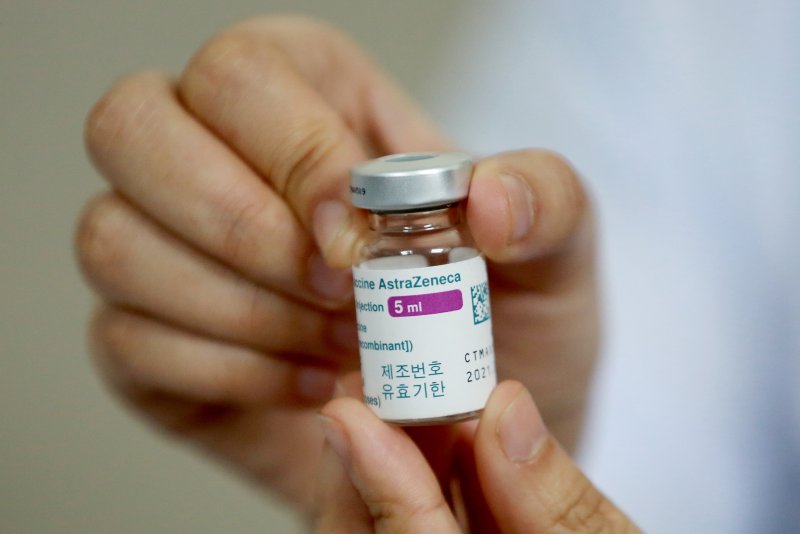Germany's vaccine commission recommended Thursday that those under 60 who have received the first of the two-shot AstraZeneca COVID-19 regimen to finish the inoculation with a different brand. Photo by Luong Thai Linh/EPA-EFE
April 2 (UPI) -- Germany's independent vaccine commission is recommending those under age 60 who have received the first of the AstraZeneca's two-shot COVID-19 regimen complete their inoculation with a different product.
Germany's Standing Vaccination Committee, known as STIKO, published the recommendation Thursday.
"Until appropriate data is available, STIKO recommends that people under 60 years old that instead of the second dose of AstraZeneca vaccine a dose of an mRNA vaccine should be administered 12 weeks after the first vaccination," it said.
The move was made days after health officials on its recommendation restricted use of the vaccine jointly made by AstraZeneca and Oxford University to those over age 60 due to concerns of rare yet severe cases of blood clots in younger recipients of the drug.
Chancellor Angela Merkel announced the restriction Tuesday, stating guidance for the 2.2 million younger Germans who had received the first shot would be published later this month.
Aside from AstraZeneca, Germany has approved three over vaccines produced by Moderna, Pfizer-BioNTech and Johnson & Johnson.
Germany imposed the restriction on the vaccine to be administered to only older people due to a small number of cases of blood clots forming in those under age 55 who had been inoculated with the AstraZeneca vaccine.
Health Minister Jens Spahn said 31 cases of the rare brain clotting had been diagnosed in the country as of Monday with nine of the patients dying as a result. Nearly all were women under age 60.
Germany was one of more than a dozen countries last month to have halted administering the drug due to blood clotting concerns, but along with the other governments restarted their campaigns days later when the European Medicines Agency concluded the vaccine was safe and its benefits outweighed its risks.















